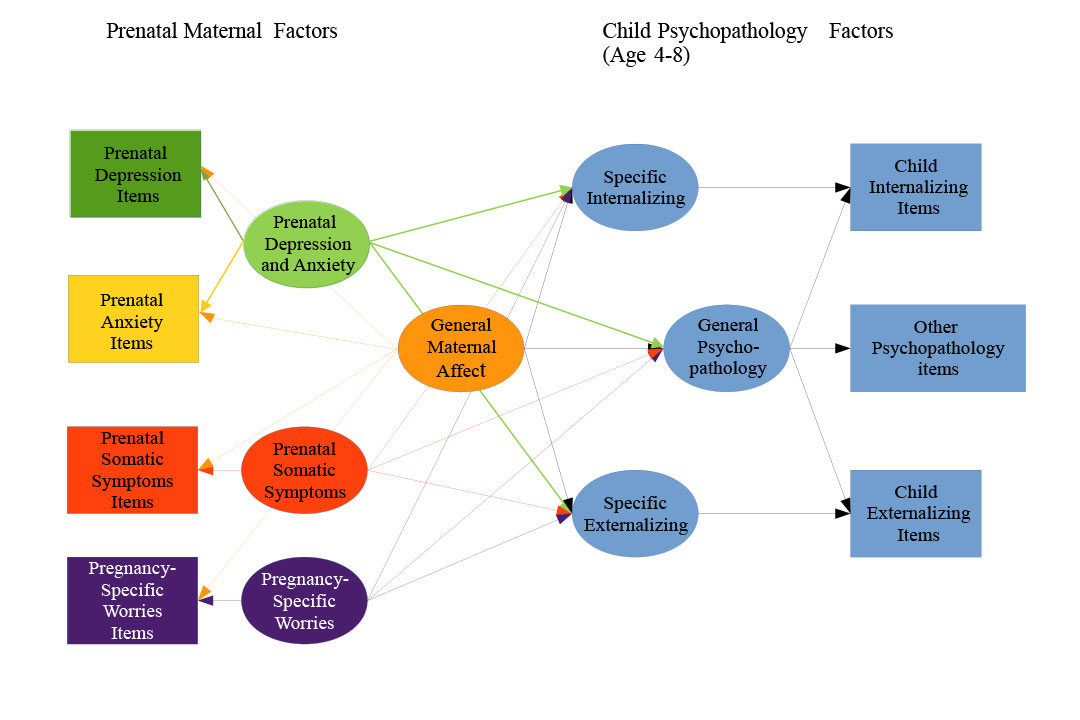Family psychiatric history is one of the biggest risk factors for psychiatric disorders. This is in part a consequence of genetic transmission of risk variants. However, environmentally mediated mechanisms are also plausible. Suffering from psychiatric symptoms may directly or indirectly impair parenting abilities. Furthermore, previous research suggested that parental affective disorders may shapes a child’s predisposition to psychopathology even before birth. Experiencing depression and other psychiatric symptoms during pregnancy is common and associated with later psychopathology of the child, with some research suggesting that this association is independent of occurrence of psychiatric symptoms after pregnancy.
While the effect of prenatal psychopathology has been the subject of numerous studies, it is not clear which maternal symptoms and pregnancy fears affect which child psychiatric problems specifically. For instance, maternal affect during pregnancy could affect the development of any child psychiatric symptom, whether it be internalizing, externalizing or other symptoms. It is also imaginable, that maternal affect only affects the development of specific child psychopathology domains. Vice versa, only specific maternal mood problems, e.g. depression, but not anxiety, may affect child psychopathology. Any combination of general and specific effects may be possible, as well: Some maternal problems may have general effects on child psychopathology, some may have specific effects, and some may have none.
To disentangle the various possible associations, we make use of bifactor modeling for both prenatal maternal affect and child psychopathology (see Harmonization section for more information). We extended the maternal bifactor model, by including structural paths from the maternal factors to the child psychopathology factor scores in a structural equation model. A path diagram can be found in Figure 1. We fitted the model with different sets of covariates to adjust for potential confounding, as maternal psychopathology could be an indicator for other adverse environments or later psychopathology. Model 1 was unadjusted, Model 2 adjusted for gender and age, Model 3 additionally adjusts for socioeconomic status and Model 4 adds postnatal maternal psychopathology. We then meta-analyzed the results across three cohorts (ALSPAC, Generation R and MAVAN).

Preliminary results for model 3 can be found in Table 1. We observed that both general maternal affect and pregnancy specific worries jointly associate with general psychopathology in children. General maternal affect and specific somatic symptoms were also predictive of specific child internalizing psychopathology. Interestingly, these associations seem to be independent of later postnatal maternal psychopathology. In summary, our results suggest that prenatal general maternal affect, specific somatic symptoms and specific pregnancy fears are predictive of general and specific internalizing psychopathology in offspring. In contrast, specific externalizing symptoms (those not co-occurring with other symptoms) are not predicted by prenatal maternal affect.

